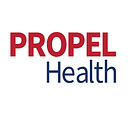How PROPEL Health Can Improve the World: A Vision for World Population Day
By Jay Gribble
PROPEL Health focuses on improving access to quality health services for people around the world. As you can imagine, this is a tall order that requires a variety of inputs. On World Population Day 2024, we’ve asked our project staff — what more can PROPEL Health do to improve the health and wellbeing of people around the world? Currently, PROPEL Health is working in 21 countries — each with a different political and social context, health needs, and history. Our staff responses reflect that great diversity — as well as their many visions, hopes, and opportunities for PROPEL Health’s impact on quality of life of the world’s population.
From their input, we identified four major vision categories. Below we unpack staff responses and offer some thoughts on how their ideas link to health policy and improved quality of life.
Progress on Key Policy Issues
Being a health policy-focused project, it isn’t surprising that many call for new and improved policies that could impact quality of life. A few of the health-related issues include the expansion of digital technologies, which allow for health systems to operate more efficiently (such as through interoperability of data systems) and improve access to services (such as through telemedicine). Another that emerged is waste reduction, a policy issue with broad implications from improving efficient use of scarce financial and human resources to policies regarding handling of medical waste so that syringes, plastic packaging, and other by-products of medicines, treatments, and equipment don’t end up in landfills. Resource mobilization and policies around health insurance (especially for the informal sector) are critical for equitable access to services and the sustainability of health programs. A call for policies and resources for comprehensive health education, including sexuality education, are linked to helping people understand how to prevent illness, unintended pregnancy, and other unwanted health outcomes. Related to prevention is the big issue of global health security — helping decisionmakers put policies in place that both prevent pandemics from spreading, while also mitigating against the adverse outcomes that impact so many aspects of people’s lives — as we learned from the COVID pandemic.
High-level and Abstract Aspirations
The second most common set of responses focused on high-level issues of rights, access, and empowerment. As a project, these aspirations underpin the work we do. Our project’s goal is to improve access to services so that all people — regardless of where they live — can live healthy, productive lives. Related to access is equity — the goal that regardless of wealth, residence, ethnicity, age — or any other personal characteristic — all people can obtain the high-quality health services they need. If we could improve equitable access to health services, people’s quality of life would improve because their basic health needs would be addressed. Another common vision related to human rights — including the right to health. If we think of human rights as the broad range of moral principles that belong to all people over the course of their lives, then ensuring that all people’s rights are upheld links closely with improving people’s quality of life. And if rights are upheld, then advancing individual empowerment would strengthen self-determination, improve quality of life, and give people the courage to stand up for what is rightfully theirs. These visions for improving quality of life link to the work that PROPEL Health undertakes, especially as we work with civil society to strengthen their collective voices and commitment to ensuring accountability for follow through on public policies and commitments.
Access to Integrated Health Services
A third set of goals focus on making more specific types of health services available to people. At a time when greater attention is placed on primary health care, several responses focused on quality of services, vaccinations, and expanding the availability of primary health care. These broad aspirations are critical to quality of life; how effective can health services be if providers are not adequately trained, they lack basic commodities, and clients are treated poorly and without respect? Primary health care is a basic set of services that should be available to respond to the majority of the public’s health needs — from vaccinations, antenatal care, family planning — to mention only a few of the key services people should expect from primary health care programs. Ensuring availability and quality of these services is the hallmark that health policies are being effectively implemented.
The Enabling Environment for Health
A fourth set of responses moves beyond the health sector to consider the roles of communities and policy issues that complement improved health, such as food security, sanitary services, and people-centered development. So many of the health issues we address in PROPEL Health extend beyond facilities and require the active participation of the community; by investing in community capacity and empowerment, people can work with the formal health sector to improve the quality of health services and their lives. Issues of food security and water and sanitation are critical to human development; when children are malnourished, their cognitive development is curtailed. When the lack water and sanitation, girls may leave school because they have to fetch water, or they may drop out when they reach menarche. Food, water, and sanitation are complementary to health — and when we address these issues, we are enhancing investments in health.
Our staff’s input reflects the various issues addressed by PROPEL Health. While we focus on the many aspects of health policy, staff members see opportunities to do more — and reinforce the many types of technical work conducted by PROPEL Health.
Jay Gribble is a Senior Director for Health at Palladium, and the Deputy Project Director, Family Planning and Reproductive Health, for PROPEL Health.
